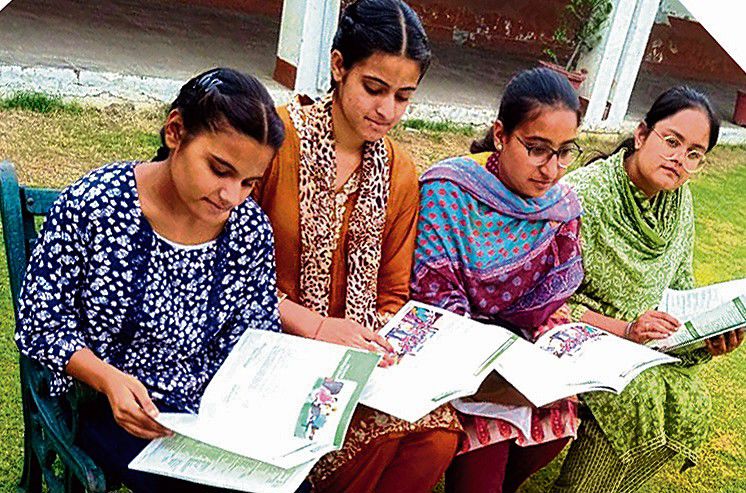Doraha, July 1
Though Panjab University has agreed to introduce NEP (New Education Policy) in its affiliated colleges beginning with the 2024-25 academic session, staff and students appear to be at a loss as to how it would be implemented and executed. The PU has conducted workshops on the subject at the college level, but teachers and students appear to be the least convinced.
Under the new policy, candidates pursuing a UG degree can choose between many major and minor disciplines. They can leave the degree after the first year and earn a UG certificate. If students decide to leave after the second year, they are eligible for a UG diploma. The NEP also offers an academic bank of credits.
They regret that the policy is being implemented in haste. It should have been carefully considered before imposing it on connected colleges.
The Nodal Officers deputed at the college level express dissatisfaction with the university’s indecision and haste in implementing the policy at the college level. The university’s academic calendar instructs institutions to implement NEP directives in classes beginning July 15. The colleges appear to be at their wits’ end, as they struggle to keep up with the university’s last-minute changes, edits and revisions.
They complain that this will undoubtedly have a negative impact on both teachers’ and pupils’ academic performance.
Admissions for the 2024-25 academic year began in May, but the university had yet to publish faculty-specific credit allocation information. Admission on the government portal commenced on May 15, and subject combination lists were shared on June 7. “The government pressed the colleges to upload the subject combinations as soon as possible because the state government’s admission portal had already been activated, but that was nearly impossible without the universities’ finalisation of combinations,” rued Malti Tiwari, Nodal Officer, NEP, GNN College, Doraha.
“On May 28, the baskets of ability enhancement, skill enhancement, and value-added courses were received, from which students are required to choose based on their area of interest. Surprisingly, another basket arrived on June 7, although I believe even these may be changed as the situation progresses,” Tiwari added.
“The session will begin on July 15, however, the syllabus for some of the disciplines covered in value-added courses, skill-based courses, and multi-disciplinary courses is yet to be shared,” she added.
Similarly, Dr Shiv Kumar, Nodal Officer NEP at AS College Khanna, expressed disappointment that Mathematics and Computer Science & Applications had been grouped together. “This means that a student can choose either, which is completely unfair to them. Denying this specific subject combination may be damaging to the academic health of students who want to become experts in both. Strangely, the combination is available for BSc (Non-Medical stream) but not for Arts stream, which is quite illogical and unreasonable,” he noted.
“Similarly, Environment Education was one of the several options available in value-added courses, but due to admission requirements, it was rendered compulsory. On June 20, the colleges were advised that Environment Science will now be provided as a compulsory subject within the value-added course basket. Another NEP nodal officer at Mata Ganga Khalsa College Manji Sahib Kottan, Agam Tiwana, believes that this will place an additional burden on already underfunded colleges.
“To advise students, teachers should be equipped with comprehensive understanding of subjects, students’ talents and employment opportunities. NEP is a student-centric policy rather than one led by the college administration. The NEP cannot be implemented without teacher mentorship, particularly for newbies. Credit load planning for speedy and slow learners should be adequately directed,” said Dr Harpreet Singh, principal, GGN Institute of Management and Technology in Ludhiana.
When contacted, Harpreet Dua, Senator, Panjab University, stated that while the university is moving forward with the NEP, there are a number of questions, doubts, and concerns that must be clarified and addressed as soon as possible in order to satisfy stakeholders such as principals, teachers, students and even parents and guardians. The haphazard implementation of an incomplete policy will disrupt the academic scenario to the point where students will be forced to abandon traditional universities in favour of private ones, which have been kept out of this policy for reasons best known to governments at both the state and Central levels,” Dua added.
Unlock Exclusive Insights with The Tribune Premium
Take your experience further with Premium access.
Thought-provoking Opinions, Expert Analysis, In-depth Insights and other Member Only Benefits
Already a Member? Sign In Now











